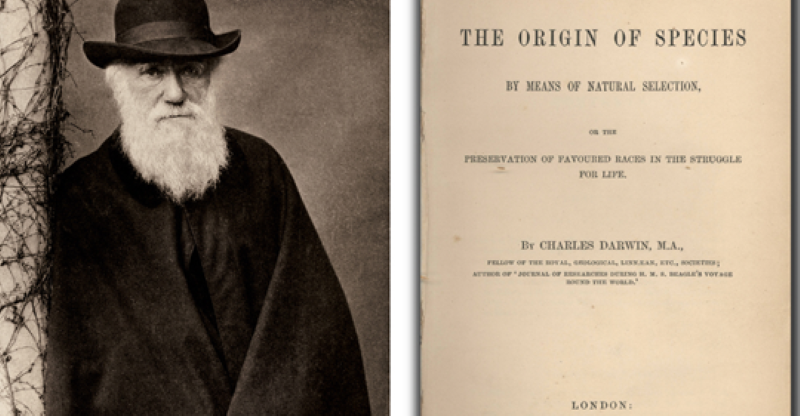Jesus Christ and Ethnicity
Sign up for a six month free
trial of The Stand Magazine!
(The first four blogs in this series can be found here, here, here, and here.)
Summary thus far: According to Acts 17:16-34, humanity consists of one race of people, descended from one man, Adam. However, God separated that one race into different ethnic groups. The word for these groups often translated “nation,” is the Greek ethnos, from which we get the English “ethnicity.” This refers to a distinct people who share a culture. Most ethnicities form cultures that refuse to honor and glorify God. The first time this occurred, God separated humanity in the judgment at Babel (Genesis 11).
The coming of Jesus Christ into the world did not change the arrangement of mankind into distinct ethnos groups. That remains in place and will be present even at the end of the age. As I said in my last blog on this subject, Jesus says that, at the end of the age, “nation will rise against nation” (Matthew 24:7). The words in this verse are a variation of ethnos – ethne will rise against ethne.
On the other hand, something absolutely wonderful happened when Jesus came: a new nation was born and is being fashioned to replace the fractured race of humanity. It will be a new ethnos group in which God-honoring differences can be embraced – and celebrated.
In 1 Peter 2:9, the apostle says, “But you are a chosen race, a royal priesthood, a holy nation, a people for God’s own possession, so that you may proclaim the excellencies of Him who has called you out of darkness into His marvelous light.”
When Peter declares that Christians are a holy “nation,” we once again see the Greek word ethnos, which in its variations refers, roughly speaking, to the group distinctions that form a particular culture.
Every culture that has ever existed is a mixture of good and bad, and that is why, in forming the new “nation,” Peter describes Christians as having been “called…out of darkness.” No ethnos group manifests the image of God in a divinely sufficient capacity, so He created a new one. This new ethnos – the church – proclaims and manifests “the excellencies” of the God who called us.
Jesus also taught this concept in Matthew 21:43. After condemning the leadership of Israel for rejecting Him, He states, “Therefore I say to you, the kingdom of God will be taken away from you and given to a people, producing the fruit of it.” Again, the word “people” is ethnos – the new nation that was/is being formed. (Of course, neither the nation of Israel nor the Jewish people were permanently rejected, as Paul states in Romans 9-11.)
In 1 Peter 2:9, the use of this word, ethnos, means that Christians are to live lives that dramatically differentiate themselves from all the ethnicities around them. What is good, pure, and God-honoring can be embraced; what is of darkness, pride, and rebellion must be rejected.
The existence of the nations (again, the various ethnos groups that exist within the single race of mankind) is the reason for missions – the Great Commission. The new ethnos of Christians, unified in their love for and faith in Jesus Christ, go out into the other nations and call all people into relationship with their Creator and Savior. Then the church is called to disciple these individuals, so their changed lives begin to reflect the “culture,” if you will, of their new ethnos.
All people are now invited into the kingdom – something with which the all-Jewish members of the early church struggled. In fact, the Jewish Christians fully expected the work of God to be limited to the Jewish ethnos.
We see this clearly in Acts 10, when God spoke to Cornelius, an Italian centurion of the Roman army. He was told by an angel of God to send men to find Peter.
However, Peter considered non-Jews to be unclean according to the Law of Moses. He even explains later, “You yourselves know how unlawful it is for a man who is a Jew to associate with a foreigner or to visit him” (vs. 28). So, Peter had to be softened to receive the men sent by this centurion. What was the message God gave to him? What God calls clean, let no man call unclean.
When Peter met with the delegation sent by the centurion, they explained that Cornelius was “a righteous and God-fearing man well spoken of by the entire nation of the Jews” (vs. 22).
Note the old way of thinking, however, even on the part of this God-fearing Gentile. Cornelius, the men said, was well thought of by “the entire nation (ethne) of the Jews.” There is an “us” and there is a “you,” and the two cannot mix.
But God was doing something new in the Earth – and Peter was only beginning to understand it. He told the delegation from Cornelius, “God has shown me that I should not call any man unholy or unclean” (vs. 28).
The Lord was preparing to begin the expansion of the gospel into the Gentile (non-Jewish) world. Gentiles would be allowed into the kingdom. This was a new way of thinking.
This is seen over and over in the New Testament. In Colossians 3:9-11, Paul says the power of the gospel is renewing people “according to the image of the One who created” them. But that is a renewal in which “there is no distinction between Greek and Jew, circumcised and uncircumcised, barbarian, Scythian, slave and freeman, but Christ is all, and in all” (vs. 11). The various distinctions between us – some of these fall into the category of cultural differences – are removed in Christ. Christians are being born again into a new ethnos, so that our old differences do not matter as they once did.
There is a similar statement by Paul in Galatians 3:28, in which the apostle says, “There is neither Jew nor Greek, there is neither slave nor free man, there is neither male nor female; for you are all one in Christ Jesus.”
This clearly refers to the spiritual existence upon which Christians have embarked, as we all become part of a new, holy nation. The distinctions disappear before our Creator. Jews who are Christians are “clean,” as Peter said, but so are Gentiles who are Christians. We are all “one in Christ Jesus.”
The entire teaching of the New Testament makes it clear that the apostles are not stating that these differences cease to exist in the natural realm. How do we know this? In Galatians, Paul says there is “neither male nor female…in Christ Jesus,” and yet in Ephesians 5:22-33, the apostle gives distinct marital instructions based on the fact that husbands and wives – that is, men and women – are different.
The same is true when Paul discusses slave and freeman in Colossians and Galatians. His point is that both slave and freeman are accepted in Christ and stand as equals before God. However, in passages like Ephesians 6:5-9, Paul gives different instructions to Christians who still live in the cultural reality of slavery.
This dichotomy between our natural lives and our new, spiritual existence is clear in Ephesians 6. There is the life we live “according to the flesh” (vs. 5), in which differences remain. Then there is life in the new ethnos of the kingdom: “And masters, do the same things to them, and give up threatening, knowing that both their Master and yours is in heaven, and there is no partiality with Him” (vs. 9). In other words, God shows no partiality in the kingdom – He treats slave and master the same.
This new reality is to create a new attitude in the Christian. The old animosities that once existed between different people groups are to fade away in Christ. He has become “our peace” (Ephesians 2:14) – we now identify as an “us.”
When talking about the old hostility between Jew and Gentile, Paul says Jesus Christ “made both groups into one and broke down the barrier of the dividing wall, by abolishing in His flesh the enmity, which is the Law of commandments contained in ordinances, so that in Himself He might make the two into one new man, thus establishing peace, and might reconcile them both in one body to God through the cross, by it having put to death the enmity” (vv. 14-16).
This is the miracle of the power and glory of Jesus Christ. A once unified race, shattered and partitioned by God to restrain the evil and rebellion in fallen humanity, now has the opportunity to reunite in love and peace, as they humble themselves before a risen Savior.
In the final book of the Bible, we see the heavenly host praising God and the Lamb for this very thing: “And they sang a new song, saying, ‘Worthy are You to take the book and to break its seals; for You were slain, and purchased for God with Your blood men from every tribe and tongue and people and nation (ethnos)’” (Revelation 5:9).
With regards to the nations of the earth and their cultures, there is even more that has been wrought by Jesus Christ – both glorious and terrifying. We’ll see that next.

Sign up for a free six-month trial of
The Stand Magazine!
Sign up for free to receive notable blogs delivered to your email weekly.


















